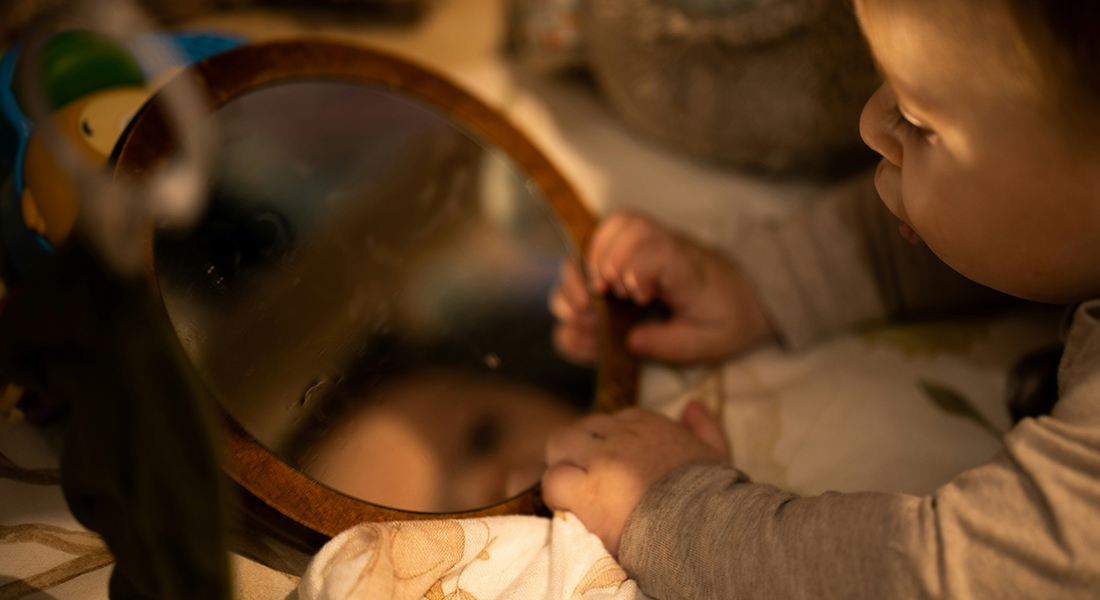The search for the origin of our self-awareness
How do infants become aware of their own existence? Professor Victoria Southgate aims to answer this question in a new project supported by the Independent Research Fund Denmark.

Awareness of our own existence is a crucial part of human consciousness. Self-awareness is the catalyst for our wellbeing as well as suffering, and it is central to our ability to understand other people's minds.
‘Human beings are not born with self-awareness, but research suggests it develops by around 18 months of age,’ explains Victoria Southgate, Professor in the Department of Psychology.
While many philosophers have theorised about how self-awareness arises, there is still no knowledge about how infants actually become self-aware.
‘It's not just a question of human consciousness. It's also crucial for understanding disorders of consciousness that occur during development and for informing concerns about self-aware artificial intelligence,’ emphasises Victoria Southgate.
Bodily signals as a foundation
In a new research project, she will make the first attempt to link self-awareness at 18 months with very early bodily signals in 3-month-old children. The assumption is that these bodily signals form a foundation for the development of self-awareness.
‘We will test infants at 3, 9 and 18 months of age using both behavioural and neuroimaging methods. The aim is to test how the social context of development – including physical proximity to the carer – provides inputs that the infant's brain can use to generate awareness of self-generated signals from the body,’ says Victoria Southgate.
The project, called ‘The origins of self-awareness: Exploring the social modulation of interoceptive awareness in human infants’, will provide the first empirical data relating early bodily signals to later conceptual self-awareness.
Independent Research Fund Denmark supports the project with DKK 3.2 million.
Contact
Victoria Southgate
Professor
Department of Psychology
Mail: victoria.southgate@psy.ku.dk
Phone: +45 35 33 43 40
Simon Knokgaard Halskov
Press and communication advisor
The Faculty of Social Sciences
Mail: sih@samf.ku.dk
Phone: +45 93 56 53 29
